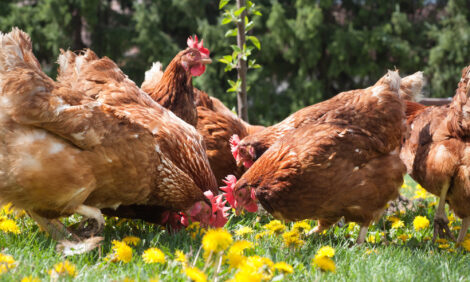



New Resources Aim to Clear Up Consumer Chicken Confusion
US – In an effort to recognise and continue to respond to questions about chicken production, the National Chicken Council today through its Chicken Check In initiative announced several new resources pertaining to broiler chicken welfare and chicken products.The stunning of chickens – rendering the birds unconscious and insensible to pain – has been the subject of considerable research and discussion. There is one primary method of stunning broilers prior to slaughter in the US and that is “electrical stunning.” There are also a limited number of facilities in the US that utilise a system knows as “controlled atmosphere stunning.” Dr Karen Christensen, extension poultry specialist/ associate professor at the Center of Excellence for Poultry Science, University of Arkansas, answers the most frequently asked questions and pros and cons of each system in a new FAQ posted on Chicken Check In.
Second, a new video has been posted to Chicken Check In’s “Day in the Life” video series that brings viewers inside a typical chicken house to learn what a day in the life of a broiler chicken is like. This bite-sized video, “How Chickens Are Actually Raised. For Real,” covers the first day chicks arrive to the farm to when they are transported to processing.
Finally, a survey by the National Chicken Council found that nearly two-thirds (62 per cent) of consumers said chicken labels and packaging were confusing. To clear up some common chicken labeling misperceptions, a new blog post on the Chicken Check In blog, “The Cluck,” breaks down five confusing labels on chicken products and what they actually mean.
“The mission of Chicken Check In is to provide those who have questions with the level of information they want regarding the care and safety of the chicken they eat, and to feel confident in eating it,” noted Tom Super, National Chicken Council senior vice president of communications.
“We’re committed to continuing to work to build consumer trust by inviting Americans to ask the questions they have now and in the future as they learn more about chicken production.”









